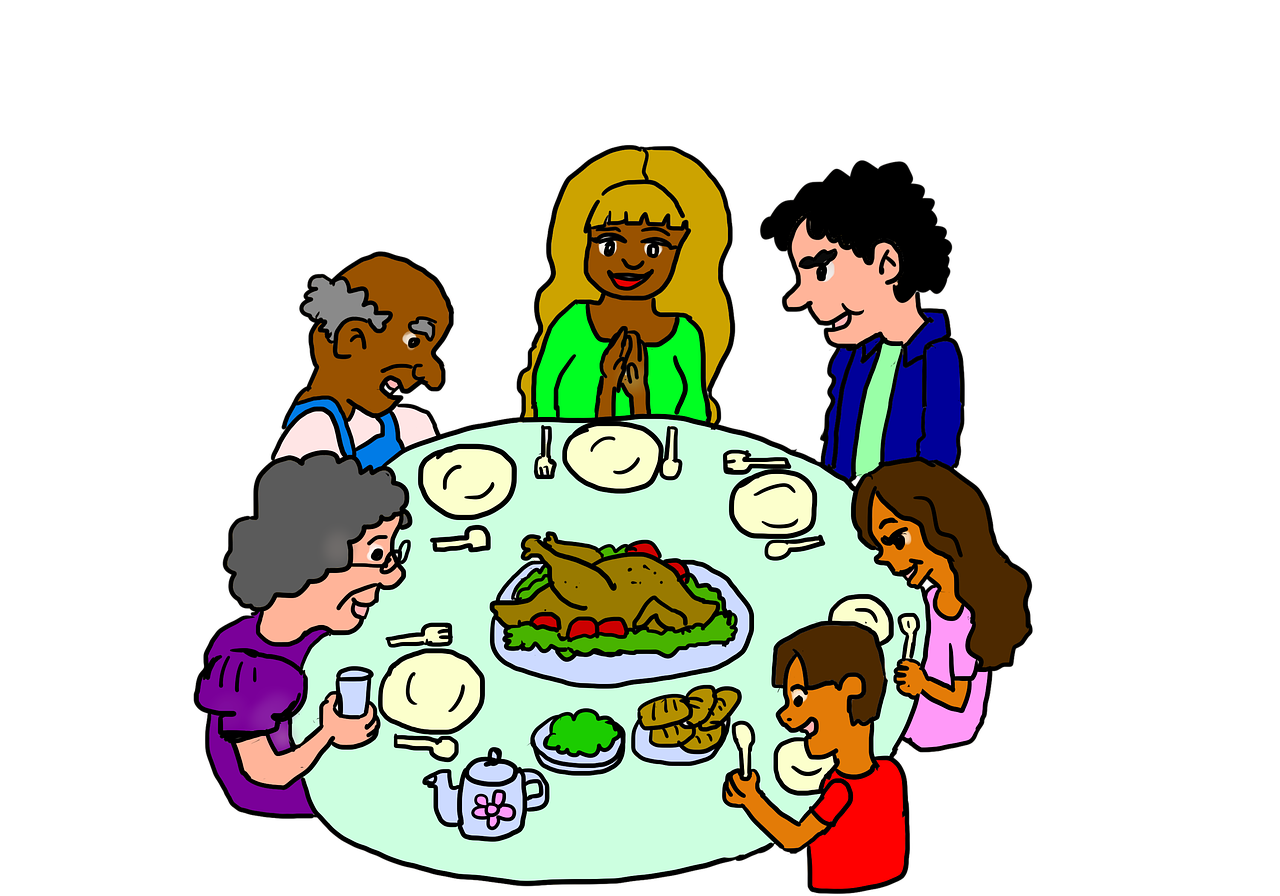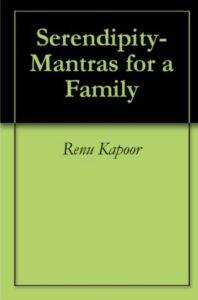
Literary Speaking: Mantras for a family
 By Ranjit Monga*
By Ranjit Monga*
 Elders have a big responsibility within a family. They have to be the ‘bigger givers’ to promote togetherness, according to Renu Kapoor, author of Serendipity; Mantras for a Family.
Elders have a big responsibility within a family. They have to be the ‘bigger givers’ to promote togetherness, according to Renu Kapoor, author of Serendipity; Mantras for a Family.
In the book, Renu has penned down 25 mantras to follow and is based on her personal experiences of life in a large joint family in Mumbai. “I was brought up in a nuclear family and was married into a large family and was unfamiliar with the dynamics at first. But slowly I learned, mostly through the example set by the elders, my in-laws,” she explains and adds that it was a vivid experience for her, and she was amazed at how interpersonal relationships worked so smoothly.
Renu is well known for her work in many fields. A chartered accountant by profession she is known for her efforts to introduce a humane touch to the mortuary in Saint George’s Hospital and is also responsible for the reconstruction of the crematorium at Marine Lines in Mumbai. Her social campaign #dignityindeath draws attention to such issues. An accomplished Bharatnatyam dancer, she also works with women entrepreneurs and is an active member of the women’s wing of the Federation of Indian Chambers of Commerce and Industry (FICCI).

“I decided to write this book so that other people would benefit from my experiences. It is not as if there are no differences among family members, but one can pull through them by following some simple ‘rules’ or ‘mantras’,” she offers.
Renu puts the onus on elders. “They have to set the pace because whatever they do will be what will be followed by the younger generation. And that is what they will get back, that is something we must always continue to remember and remind ourselves,” she adds.
It is the mantra number three from the book which she says is the basic and most important.
“The intention to resolve an issue and carry on as if nothing has happened must be predominant, as that is the only way to sustain joyous relationships. If you break it down it actually means ‘sabse banake rakhna’ as we say in Hindi or come what may we have to carry on as if nothing has happened, or the show must go on in a positive and harmonious manner,” she elaborates.
“Actually, this applies even to the workplace even with your domestic staff, with friends, you learn to accept,” adds Renu.
Speaking about the other mantras, Renu articulates that a new entrant to the family must be properly welcomed, as that creates positivity for the future. “Warmth and love must be personally demonstrated to the new bahu or the new daughter-in-law or even a son-in-law, by all. How the new entrant is received determines the future tone of the relationship, so the first big step has to be taken by the elders and it cannot be the other way round,” she adds.
“Once you have made someone your own or they have become part of the family, then you should treat them as your own with no reservations. And that works both ways, I may not like something that is happening, or my in-laws have done something, but because they are mine, I do not need to vocalize everything or criticize because you know the next day is going to be different,” says Renu and adds that it’s a process, which won’t happen overnight. “For me, it happened over a few years, and it really helped that my elders were demonstrative in the way they received me into the family and were accommodating throughout,” she narrates.
According to Renu, one should also let go of the sense of personal ownership over things owned collectively. “I was told right in the beginning. I cannot use the word, ‘mine’. I was told in a sweet manner, but I was told off that you cannot say that ‘this is mine’ because here everything is ‘ours’. It took me a little time to reconcile to this, that I have to keep using the word hamara, but it has got so well entrenched that today the home I live in, which is our home, my husband and mine, I never refer to it as our home. I always say let us go to ‘Ajanta’, which is where I stay,” she explains.
“So even my grandchildren now call my home ‘Ajanta’, they don’t say grandmother’s home. It is something that my mother-in-law said once and it has stuck with me,” she adds.
Renu narrates another story which emphasises that what you do always comes back to you. “My husband’s grandmother used to tell us this story continuously about another family, in which the elders used to live on the terrace. After both the elders died, the children moved their parents’ beds to the terrace. And when the parents asked why have you done this? The kids said that is where your parents were staying, so now we have also moved you there,” she says. “Over the years I have seen this story has proved to be absolutely true, whether at home or at work and it has got entrenched in me,” she adds.
“I came from a nuclear family. But had a very harmonious set of brothers of my father and my grandparents, so I had always sort of realized the virtues of family. But I needed to be reprimanded or reminded by my in-laws many times about different things. But I received it because there was a lot of love and a lot of fairness. For example, there was no differentiation between my sister-in-law, that is, my husband’s sister or my other sister-in-law and me,” Renu says.
According to the author, all these learnings can be applied both to joint as well as nuclear families. What should be done is to leverage the good points about the joint family where you share, where you do things together, you pray together, and you have your meals together. All these reinforce relationships.

Renu recommends that grandparents should not be considered an appendage. They should be considered as an integral part of the family, and the children should be encouraged to make cards for them, give them gifts and visit them regularly.
Structured family interaction is most important for harmony. “In our family, even though we are all dispersed, my younger daughter has decided that she is going to organise a ‘havan’ ceremony on the birthdays of their children and on their anniversary, and so all the immediate family first cousins, second cousins, we all get together on that day. There is something about when you pray together, it creates a new type of energy and fosters togetherness. Recently we celebrated my mother-in-law’s 90th birthday, her great-grandchildren came from all over the world to celebrate her birthday, she must have done something right or a lot of rights that everybody felt that they need to be here, so we have to have structure even if the kids protest,” she informs. She describes how when she was a child, Sunday afternoons were spent at her grandparents’ home, and it was not negotiable!
“Such visits should be a ritual, that you celebrate Diwali and other festivals together. You cannot just be I and me and my two children. Young parents need to set an example for their children to follow. Elders have a huge value. And what children can get from them, they will not get from their parents,” she maintains.
Renu feels that it is essential that elders too invest in their relationship with the youngsters. “Sometimes when I reread the mantras, I feel that if only people can follow these, it would lead to much happier families and the youngsters, many of whom are going through psychological issues, would be better off,” she opines.
*Ranjit Monga is a senior journalist and documentary filmmaker





